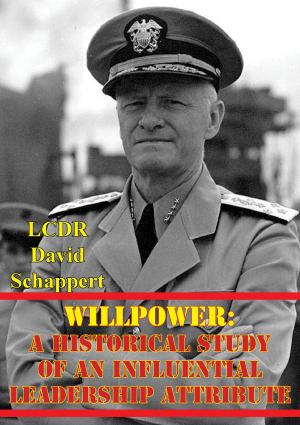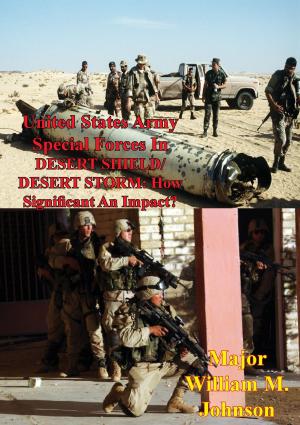Helicopters in Irregular Warfare: Algeria, Vietnam, and Afghanistan [Illustrated Edition]
Nonfiction, History, Middle East, Persian Gulf War, Military| Author: | Major Beau G. Rollie | ISBN: | 9781782895152 |
| Publisher: | Tannenberg Publishing | Publication: | August 15, 2014 |
| Imprint: | Tannenberg Publishing | Language: | English |
| Author: | Major Beau G. Rollie |
| ISBN: | 9781782895152 |
| Publisher: | Tannenberg Publishing |
| Publication: | August 15, 2014 |
| Imprint: | Tannenberg Publishing |
| Language: | English |
Includes 3 maps and more than 10 illustrations
The preponderance of conflicts fought over the last seventy years have included or been centered on irregular warfare and counter-insurgency. Indeed, the helicopter’s first significant trials in combat took place during the Algerian War 1954-1962, the Vietnam War 1955-1975, and the Soviet-Afghan War 1979-1989. During these wars, French, U.S., and Soviet militaries used significant numbers of helicopters to fight insurgents and guerrillas, and each country lost their respective conflict. As conventional organizations, these militaries used helicopters to seek military dominance, often blind to or in spite of politico-strategic goals like legitimacy. The helicopter’s firepower and mobility tactically decimated insurgents, but the nature of irregular warfare rendered tactical dominance indecisive. Helicopters were indecisive or bad at enabling legitimacy, population control, and isolation, key tenets of successful COIN. Convinced that helicopter enabled military dominance could win, the French, U.S., and Soviet militaries were unable to balance the pursuit of military and politically objectives. Airmobility distracted leaders from focusing on the political aspects of counter-insurgency.
Includes 3 maps and more than 10 illustrations
The preponderance of conflicts fought over the last seventy years have included or been centered on irregular warfare and counter-insurgency. Indeed, the helicopter’s first significant trials in combat took place during the Algerian War 1954-1962, the Vietnam War 1955-1975, and the Soviet-Afghan War 1979-1989. During these wars, French, U.S., and Soviet militaries used significant numbers of helicopters to fight insurgents and guerrillas, and each country lost their respective conflict. As conventional organizations, these militaries used helicopters to seek military dominance, often blind to or in spite of politico-strategic goals like legitimacy. The helicopter’s firepower and mobility tactically decimated insurgents, but the nature of irregular warfare rendered tactical dominance indecisive. Helicopters were indecisive or bad at enabling legitimacy, population control, and isolation, key tenets of successful COIN. Convinced that helicopter enabled military dominance could win, the French, U.S., and Soviet militaries were unable to balance the pursuit of military and politically objectives. Airmobility distracted leaders from focusing on the political aspects of counter-insurgency.
![Cover of the book Helicopters in Irregular Warfare: Algeria, Vietnam, and Afghanistan [Illustrated Edition] by Major Beau G. Rollie, Tannenberg Publishing](https://www.kuoky.com/images/2014/august/500x500/9781782895152-A0GJ_500x.jpg)
![Cover of the book To Save A City: The Berlin Airlift, 1948-1949 [Illustrated Edition] by Major Beau G. Rollie](https://www.kuoky.com/images/2015/november/300x300/9781786252487-Adty_300x.jpg)

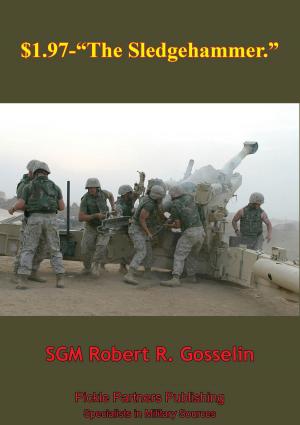

![Cover of the book Air Power Versus U-Boats - Confronting Hitler’s Submarine Menace In The European Theater [Illustrated Edition] by Major Beau G. Rollie](https://www.kuoky.com/images/2014/august/300x300/9781782898900-VTs6_300x.jpg)

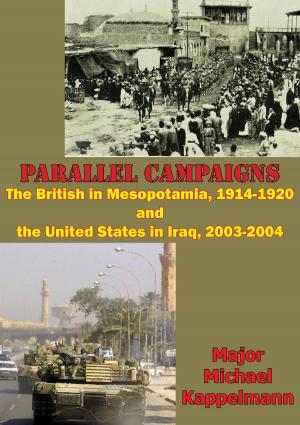
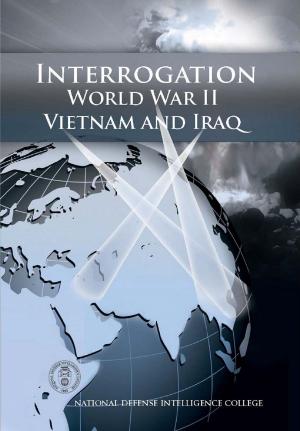
![Cover of the book Vanguard Of Valor : Small Unit Actions In Afghanistan Vol. II [Illustrated Edition] by Major Beau G. Rollie](https://www.kuoky.com/images/2014/august/300x300/9781782894964-xwTe_300x.jpg)
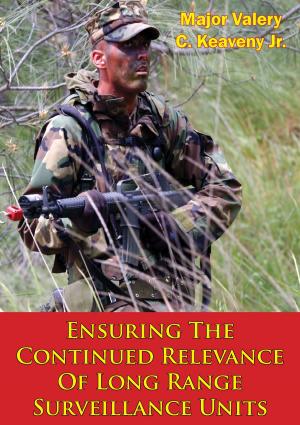
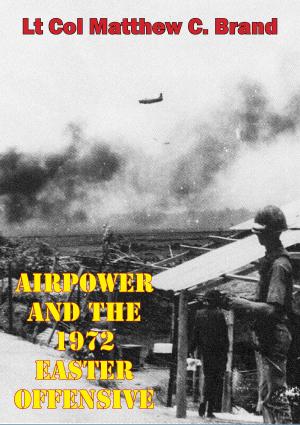

![Cover of the book Billy Mitchell: Stormy Petrel Of The Air [Illustrated Edition] by Major Beau G. Rollie](https://www.kuoky.com/images/2015/november/300x300/9781786252463-h6c3_300x.jpg)
